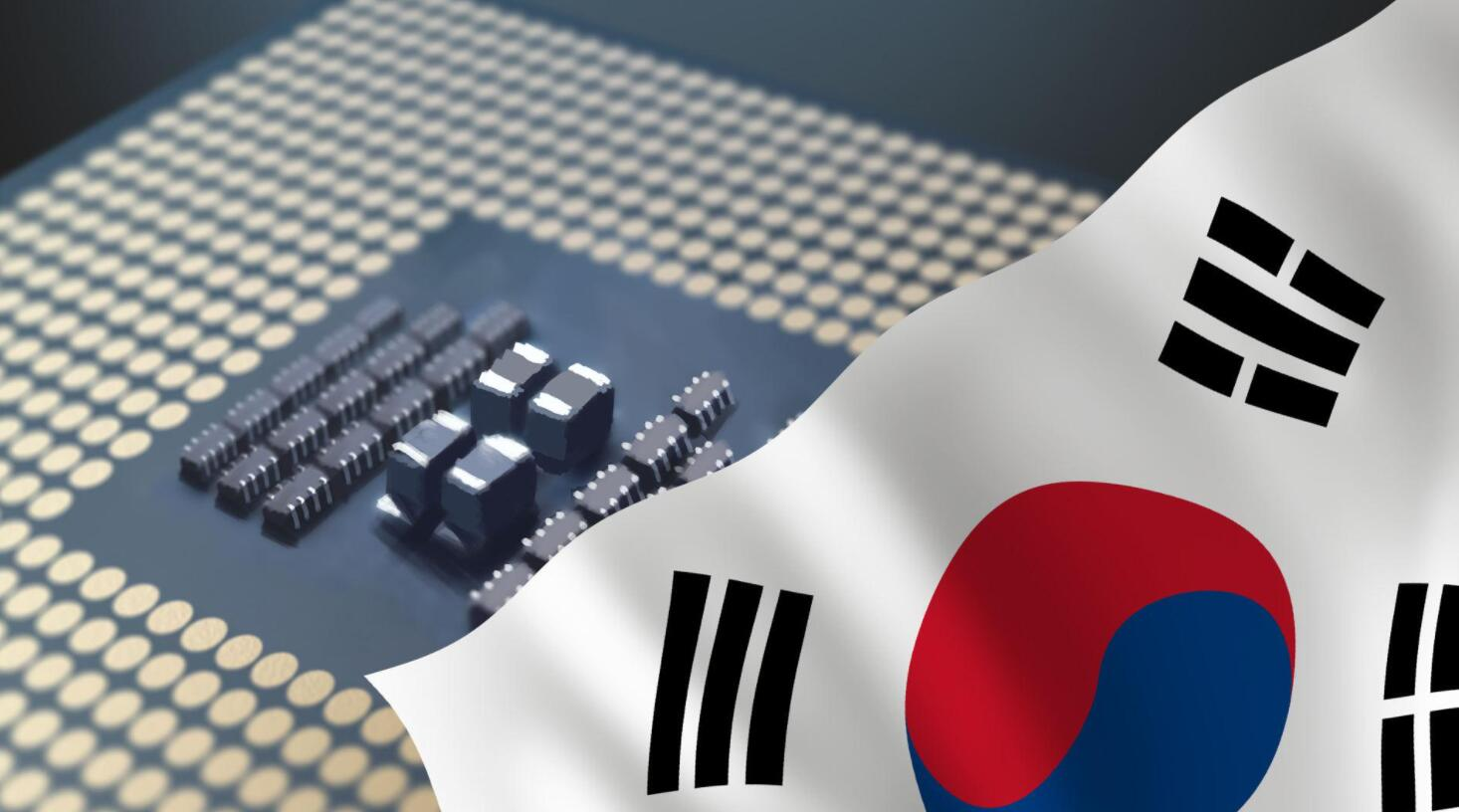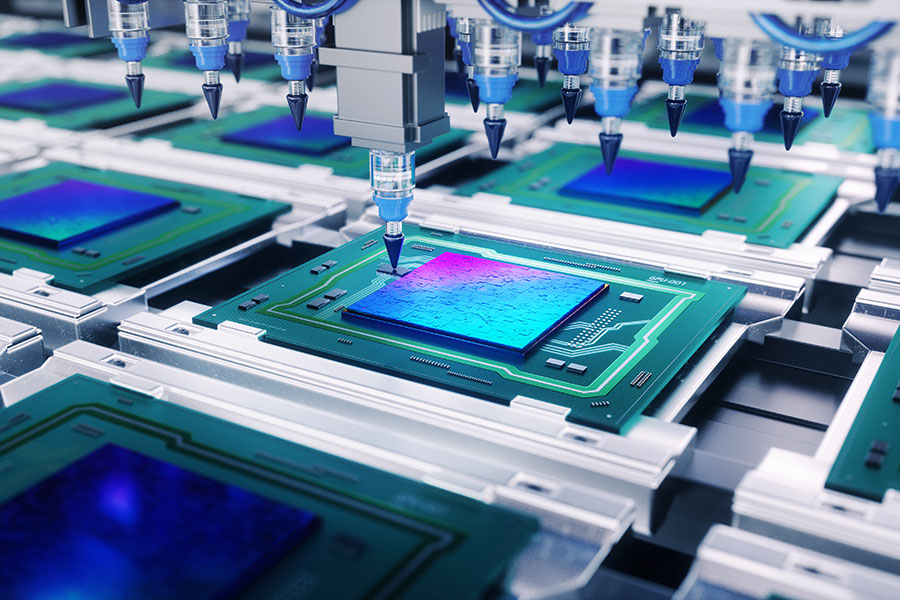Latest Developments: New Strategies from South Korea, TSMC, Sanmina, and AMD
1. South Korea's Quest for a World-Class AI Supercomputer
 The South Korean government is vigorously advancing its infrastructure construction in the field of artificial intelligence (AI). According to an announcement by the Ministry of Science and ICT on May 14, the Korea Institute of Science and Technology Information (KISTI) has signed a contract worth 382.5 billion KRW with Hewlett Packard Enterprise (HPE) to build the country's sixth national supercomputer. This new supercomputer will be equipped with approximately 8,500 advanced GPUs and is expected to rank among the top ten in the world in terms of computing performance. It is scheduled to be installed at KISTI in the first half of 2026.
The South Korean government is vigorously advancing its infrastructure construction in the field of artificial intelligence (AI). According to an announcement by the Ministry of Science and ICT on May 14, the Korea Institute of Science and Technology Information (KISTI) has signed a contract worth 382.5 billion KRW with Hewlett Packard Enterprise (HPE) to build the country's sixth national supercomputer. This new supercomputer will be equipped with approximately 8,500 advanced GPUs and is expected to rank among the top ten in the world in terms of computing performance. It is scheduled to be installed at KISTI in the first half of 2026.
The supercomputer will feature an infrastructure with 8,496 GPUs and a computing performance of 600 petaflops (quadrillions of floating-point operations per second), which is 23 times that of the existing Supercomputer No. 5 (25.7 petaflops). Unlike Supercomputer No. 5, which is mainly based on central processing units (CPUs), Supercomputer No. 6 will primarily consist of GPUs such as NVIDIA's GH200 and will be dedicated to AI computing. South Korea plans to use this supercomputer for AI learning and inference, simulations, and research in fields such as high-energy physics, mechanics, fluid dynamics, aerospace, and meteorology.
2. TSMC Accelerates Global Expansion and Advanced Process Development
TSMC, a global leader in semiconductor manufacturing, is accelerating its global layout. According to information from TSMC's Taiwan Technology Forum on May 15, the company plans to build nine new factories worldwide in 2025, including eight wafer fabs and one advanced packaging facility. This expansion plan demonstrates TSMC's proactive response to market demand and its continued investment in the semiconductor manufacturing sector.
TSMC's Fab 25 in Taichung will begin construction at the end of 2025 and is scheduled to produce advanced process technologies below 2nm by 2028. In addition, TSMC's 3nm process has entered its third year of mass production, with a projected 60% increase in capacity in 2025 compared to last year. The 2nm process is expected to start mass production in the second half of 2025. These plans not only highlight TSMC's leading position in advanced process technology but also reflect its forward-looking market strategy.
3. AMD Deepens Cooperation with TSMC and Explores Diverse Collaboration Models
 AMD, a globally renowned semiconductor design company, has recently confirmed that it will adopt TSMC's 2nm process technology. AMD's next-generation Zen 6 EPYC processor, Venice, will be built using TSMC's N2 process and is expected to be launched in 2026. AMD Senior Vice President Dan McNamara stated that TSMC's 2nm process is at the forefront of the industry, and AMD is focusing on optimizing CPU energy efficiency and performance.
AMD, a globally renowned semiconductor design company, has recently confirmed that it will adopt TSMC's 2nm process technology. AMD's next-generation Zen 6 EPYC processor, Venice, will be built using TSMC's N2 process and is expected to be launched in 2026. AMD Senior Vice President Dan McNamara stated that TSMC's 2nm process is at the forefront of the industry, and AMD is focusing on optimizing CPU energy efficiency and performance.
Although AMD maintains a long-term partnership with TSMC, McNamara also pointed out that AMD is not limited to any single company. As long as it can provide the best products and services to customers, AMD is open to collaborating with any enterprise. This flexible and open approach provides AMD with greater flexibility and choice in future technological development and market competition.
4. Sanmina Corp. Expands Its Business Territory
Electronics manufacturing services provider Sanmina Corp. is in advanced negotiations to acquire AMD's server assembly factory. The factory in question was acquired by AMD in March 2024 when it purchased ZT Systems. If the acquisition is successful, Sanmina will be able to further expand its business in the server manufacturing sector and strengthen its leading position in the electronics manufacturing services industry. For AMD, divesting the server assembly factory will allow it to focus more on its core business of chip design and research and development, optimizing resource allocation and enhancing its core competitiveness.
Conevo IC Distributor
Conevo is a leading distributor specializing in providing high-quality integrated circuits (ICs) to meet diverse industry needs. We offer a seamless one-stop solution for sourcing top-tier IC components, ensuring reliability and efficiency for our customers.
1. Intel EP4CE22E22C8N: A versatile FPGA ideal for low-power, high-performance applications.
2. Analog Devices ADL5303ACPZ-R7: A high-performance RF amplifier, perfect for broadband and wireless communication systems.
3. Micron MT40A2G8SA-062E:F: A high-density memory solution, optimized for fast data access and storage.
Website: www.conevoelec.com
Email: info@conevoelec.com








